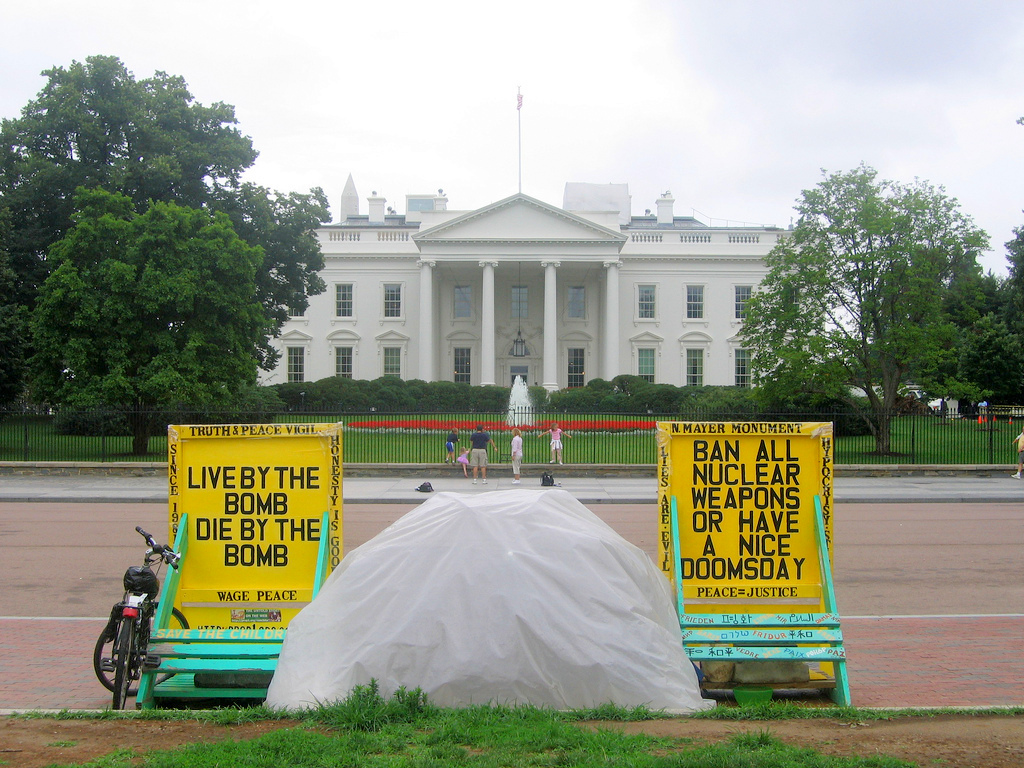|
Brambles Farm Peace Camp
The Brambles Farm Peace Camp was a peace camp set up in the Spring of 1982 on farmland at Waterlooville, Hampshire by local residents and peace campaigners to protest at and to disrupt the planned construction of a torpedo factory on the site. The demonstrators occupied the land for 10 weeks before being evicted in September of that year. The site was soon re-occupied for a short time although this was short-lived and the peace camp folded soon after. The Torpedo Town Festival was born out of the camp and was held at various locations, wandering from Hampshire to as far away as Wales, until the early nineties. References Peace organisations based in the United Kingdom Anti-war protests Peace camps 1982 establishments in England {{England-org-stub ... [...More Info...] [...Related Items...] OR: [Wikipedia] [Google] [Baidu] |
Peace Camp
Peace camps are a form of physical protest camp that is focused on anti-war and anti-nuclear activity. They are set up outside military bases by members of the peace movement who oppose either the existence of the military bases themselves, the armaments held there, or the politics of those who control the bases. They began in the 1920s and became prominent in 1982 due to the worldwide publicity generated by the Greenham Common Women's Peace Camp. They were particularly a phenomenon of the United Kingdom in the 1980s where they were associated with sentiment against American imperialism but Peace Camps have existed at other times and places since the 1920s. Reasoning behind the protest In the United Kingdom, people came to live outside military bases at protest camps in order to witness their opposition to and nonviolently protest against the presence of nuclear weapons in Europe that were directed against the then Soviet Union by the United States, calling for nuclear disarmamen ... [...More Info...] [...Related Items...] OR: [Wikipedia] [Google] [Baidu] |
Waterlooville
Waterlooville is a market town in the Borough of Havant in Hampshire, England, approximately north northeast of Portsmouth. It is the largest town in the borough. The town has a population of about 64,350 and is surrounded by Purbrook, Blendworth, Cowplain, Lovedean, Clanfield, Catherington, Crookhorn, Denmead, Hambledon, Horndean and Widley. It forms part of the South Hampshire conurbation. The town formed around the old A3 London to Portsmouth road. Waterlooville is twinned with Maurepas, Yvelines in France and Henstedt-Ulzburg in Germany. History It is reputed that the name derived from a pub that stood at the centre of the town, then known as Wait Lane End, where the stage-coach horses waited to change places with the team that pulled the coach up and over Portsdown Hill. The pub had been named ''Heroes of Waterloo'' because, on its opening day. in 1815, soldiers who had just disembarked at Portsmouth, returning from the Battle of Waterloo, decided to stop there and c ... [...More Info...] [...Related Items...] OR: [Wikipedia] [Google] [Baidu] |
Peace Organisations Based In The United Kingdom
Peace is a concept of societal friendship and harmony in the absence of hostility and violence. In a social sense, peace is commonly used to mean a lack of conflict (such as war) and freedom from fear of violence between individuals or groups. Throughout history, leaders have used peacemaking and diplomacy to establish a type of behavioral restraint that has resulted in the establishment of regional peace or economic growth through various forms of agreements or peace treaties. Such behavioral restraint has often resulted in the reduced conflict, greater economic interactivity, and consequently substantial prosperity. "Psychological peace" (such as peaceful thinking and emotions) is perhaps less well defined, yet often a necessary precursor to establishing "behavioural peace." Peaceful behaviour sometimes results from a "peaceful inner disposition." Some have expressed the belief that peace can be initiated with a certain quality of inner tranquility that does not depend upo ... [...More Info...] [...Related Items...] OR: [Wikipedia] [Google] [Baidu] |
Anti-war Protests
An anti-war movement (also ''antiwar'') is a social movement, usually in opposition to a particular nation's decision to start or carry on an armed conflict, unconditional of a maybe-existing just cause. The term anti-war can also refer to pacifism, which is the opposition to all use of military force during conflicts, or to anti-war books, paintings, and other works of art. Some activists distinguish between anti-war movements and peace movements. Anti-war activists work through protest and other grassroots means to attempt to pressure a government (or governments) to put an end to a particular war or conflict or to prevent it in advance. History American Revolutionary War Substantial opposition to British war intervention in America led the British House of Commons on 27 February 1783 to vote against further war in America, paving the way for the Second Rockingham ministry and the Peace of Paris. Antebellum United States Substantial antiwar sentiment developed in the Un ... [...More Info...] [...Related Items...] OR: [Wikipedia] [Google] [Baidu] |
Peace Camps
Peace camps are a form of physical protest camp that is focused on anti-war and anti-nuclear activity. They are set up outside military bases by members of the peace movement who oppose either the existence of the military bases themselves, the armaments held there, or the politics of those who control the bases. They began in the 1920s and became prominent in 1982 due to the worldwide publicity generated by the Greenham Common Women's Peace Camp. They were particularly a phenomenon of the United Kingdom in the 1980s where they were associated with sentiment against American imperialism but Peace Camps have existed at other times and places since the 1920s. Reasoning behind the protest In the United Kingdom, people came to live outside military bases at protest camps in order to witness their opposition to and nonviolently protest against the presence of nuclear weapons in Europe that were directed against the then Soviet Union by the United States, calling for nuclear ... [...More Info...] [...Related Items...] OR: [Wikipedia] [Google] [Baidu] |

.jpg)
